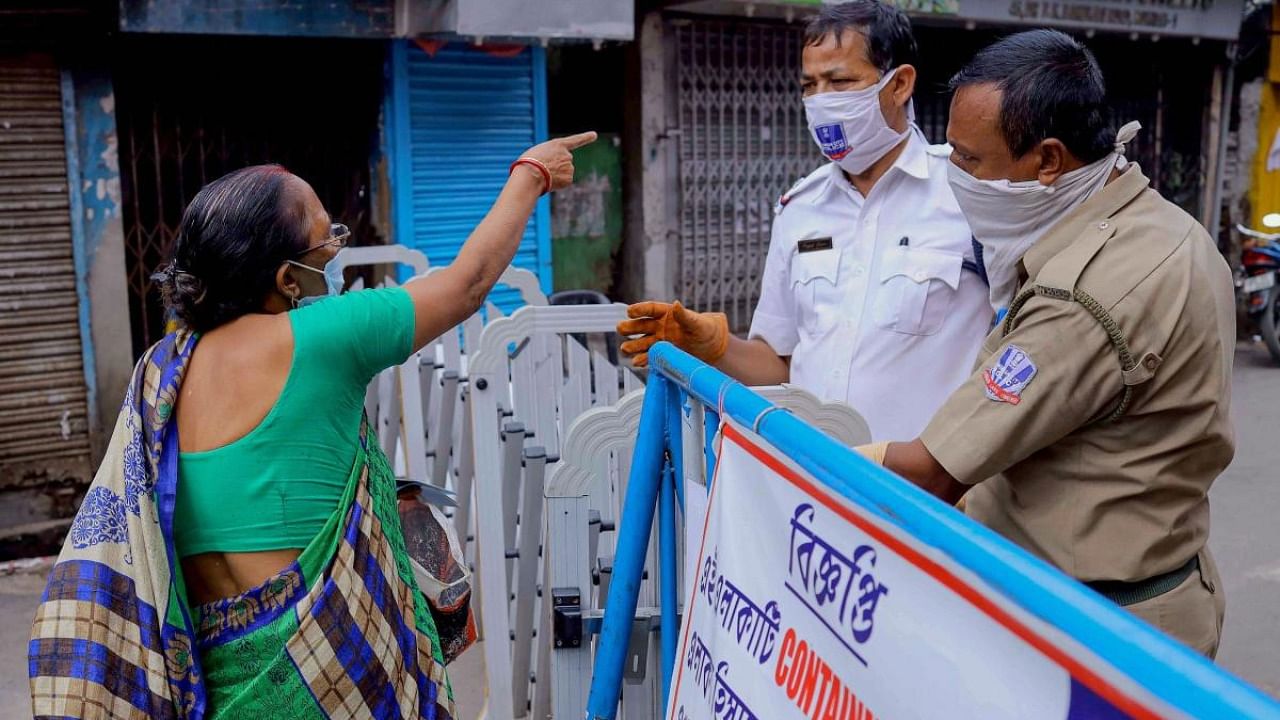
India should focus more on preventing Covid-19 deaths in big cities rather than expanding the testing net to pick up more positive cases for containment in such urban centres, public health specialists have advised going against the government’s policy of aggressive testing.
In large cities where the viral infection has spread substantially, there is no advantage of creating containment zones and aggressive testing; rather the focus should be to prevent deaths from Covid-19 and not on containing the infection, they said.
This is the opinion of some of India’s leading medical researchers and public health experts belonging to Indian Public Health Association, Indian Association of Preventive and Social Medicine and Indian Association of Epidemiologists, who recently released their second status report on the covid-19 pandemic.
The number of fresh infections broke a new record on Sunday as 90,632 new cases were registered as per the official data. The death count stands at 70,626, out of which 1065 were added in the last 24 hours. The total number of Covid-19 cases stands at 41.13 lakhs.
Public health experts said that the strategy of “Test, Track, Treat and Isolate” focusing on early identification of the cases to limit their transmission to others and for effective clinical management was helpful when the epidemic was at its very early stage to avoid its foothold in the community.
“For big cities with more than 50 lakh population and medium-sized cities with a population size between five lakh and 50 lakh, the current strategy of universal testing is a waste of resources as the focus should be on death aversion,” Sanghamitra Ghosh, secretary general, Indian Public Health Association told DH.
Since the virus has already widely spread in the community in many geographical areas, current strategy would not serve the intended objectives, the experts reported.
“Moreover, confirmed cases represent only a fraction of the total estimated cases as is indicated by sero-surveillance surveys. Hence, a greater number of tests being carried out will yield a greater number of detected cases without any benefit in reducing the deaths which should be the primary goal,” they said.
The advice goes against the ICMR’s new testing strategy in which the council suggested wide-scale expansion of rapid-antigen tests and permitted on-demand testing for the citizens without any need for a medical prescription.
“There is a need to re-assess the thrust on testing strategy and shift to syndromic management, especially in the high sero-prevalence states and districts for efficient management of resources,” they said, citing the examples of Japan and Sri Lanka which have one of the lowest testing rates and lowest fatality.
While testing and containment were still useful for rural areas or small towns with low caseload and cities with moderate infection spread, in big cities, the health department should watch out for individuals with symptoms who should be treated following a doctor’s advice irrespective of the test results, they said.
